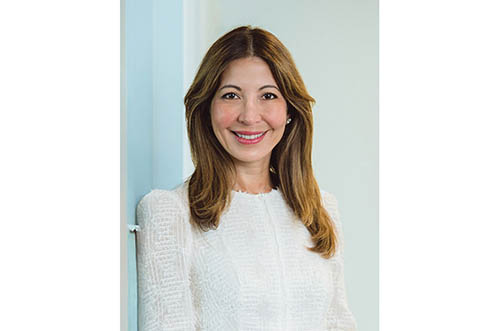— By Candise Shanbron, Esq.—
How retailers and restaurateurs can prepare for increasing natural disasters and insurance challenges.
In recent years, weather patterns across the United States have become increasingly erratic and severe. Over just the past year, nearly every region of the country has experienced some form of extreme weather event — be it hurricanes, tornadoes, hailstorms, floods, wildfires or other wind-related catastrophes. No geographical area seems immune, and all signs point toward a continued increase in the frequency and severity of these natural disasters.
For those in the retail or restaurant industry, these developments can be unsettling. However, instead of approaching this shift with anxiety, business owners should view it as an opportunity — a call to action to become more informed, more prepared and more proactive. With the right knowledge, resources and partnerships, businesses can not only weather the storm but emerge stronger and more resilient.
The Evolving Landscape of Insurance Coverage
One of the most pressing challenges for business and property owners today is securing adequate insurance coverage. Insurance has become a hot-button issue, not just because premiums are rising, but because coverage itself is becoming harder to obtain. Insurance carriers are reevaluating the types of risks they are willing to take on, updating their underwriting guidelines and often withdrawing from high-risk markets altogether (e.g. beach towns).
Whether you own the building your business operates in or lease space, the same critical questions apply: Are you adequately covered? What obligations do you have under your lease or ownership agreement? And what steps can you take to make your property — or the portion of it you control — more insurable?
Proactive Property Management & Risk Mitigation
Property owners, in particular, are expected to adopt a more hands-on approach. This includes not only investing in modern infrastructure but elevating the standard of ongoing maintenance. The objective is to prevent catastrophic damage before it occurs and to improve the insurability of the property itself.
Insurers are becoming more selective, preferring to underwrite policies for buildings that demonstrate a commitment to risk mitigation. This includes upgrades like hurricane-impact windows, reinforced roofing systems and fire-resistant materials.
Increasingly, insurers are also drawn to properties that employ smart technologies that can predict or prevent damage. For one, leak detection systems can monitor water lines for signs of failure and automatically shut off the main water valve when a problem is detected. Other technologies: flood monitoring sensors, remote building management software and early-warning systems for environmental hazards.
The implementation of these systems often leads to a win-win scenario. On one hand, property owners reduce the likelihood of expensive repairs. On the other, insurers view these efforts as responsible risk management, which can translate into lower premiums and broader coverage.
Strengthen Collaboration Between Stakeholders
The modern commercial property environment demands increased collaboration between multiple parties: property managers, risk management teams, insurance brokers and even tenants. Everyone involved in a commercial lease must understand their responsibilities, especially in the event of a natural disaster.
Retailers and restaurateurs, for example, should be fully aware of the insurance policies carried by their landlords. Does the landlord’s policy cover structural damage caused by natural disasters? Who is responsible for mitigating damage after a loss occurs or what responsibilities are apportioned to which party if both are responsible? These are not questions to wait to ask until after disaster strikes.
Lease agreements often include specific provisions outlining the responsibilities of both parties in the event of damage or destruction. Some leases may even include clauses that dictate how insurance claims are to be handled, who files them, and how any proceeds are distributed. Tenants should be vigilant in reviewing these documents and, if needed, seek legal or insurance advice to ensure clarity.
Know Your Coverage
Retail/restaurant owners must go beyond the basics of general liability and property insurance. A crucial but sometimes overlooked policy is business interruption insurance, which covers lost income when the business cannot operate due to a covered event. Another important coverage is food spoilage or loss of inventory for restaurants and retail businesses, respectively.
Depending on the equipment used, some businesses may need boiler and machinery coverage (also known as equipment breakdown insurance). This covers the repair or replacement of machinery that breaks down due to mechanical issues, power surges or operator errors. For many businesses, especially restaurants relying on refrigeration, cooking appliances or HVAC systems, this coverage can be essential.
Importance of Working with the Right Insurance Brokers
Another major pitfall in the commercial insurance landscape is the assumption that all brokers are created equal. Unfortunately, this is not the case. Too often, business owners discover too late that their broker failed to properly assess their needs, leaving them underinsured or ineligible for claims.
The reality is that no single broker or agency can offer every type of policy or access every insurance carrier. For this reason, it’s often wise to work with multiple reputable brokers or agencies. Doing so expands your options and increases the likelihood of finding tailored coverage for your specific business or property.
Even for experienced risk managers, navigating the complexities of modern commercial insurance, especially in disaster-prone areas, can be daunting. This is why it’s so important to build a team of knowledgeable, trustworthy advisors who are invested in your long term success.
Preparing for the Future
The bottom line is this: Natural disasters are becoming more common and more intense. In this evolving landscape, it’s not enough to react after the fact. Retailers, restaurateurs and property owners must shift their mindset toward prevention, preparedness and collaboration.
— Candise Shanbron, Esq. is managing partner of Cernitz Law, with offices in Florida, New York and Texas. She has dedicated her entire legal career to the practice of property insurance law. Visit www.cernitzlaw.com.
